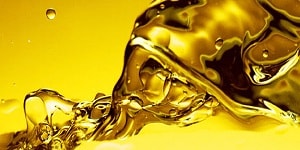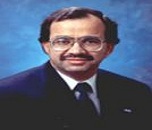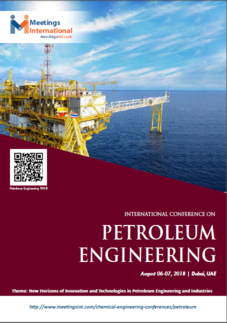
Petroleum Engineering 2018

Theme: New Horizons of Innovation and Technologies in Petroleum Engineering and Industries
We welcome everyone around the globe to attend the “International Conference on Petroleum Engineering 2018” which will be held during August 06-07, 2018 Dubai, UAE. This is going to be largest and most promising international conference where oil and gas engineering professionals and decision makers will come to discuss on various aspects.
Petroleum engineering conference 2018 directs towards main issues as well as future strategies of global energy industry. Petroleum engineering conference 2018 provides a stage to globalize the invention by introducing among scholastic associations and learning exchange from research to industry.
Meetings International (Meetings Int.) is a global leader in producing high quality conferences, meetings, workshops and symposia in all major fields of science, technology and medicine. Since its inception, Meetings Int. has been associated with national and international associations, corporations and high level individuals, dedicated to host world class conferences and events. Meetings Int. supports broad scope research and peer review at a broad range of specialists around the world. The key strategic objective of Meetings Int. is to communicate science and medical research between academia, and industry. Through inspiring sessions and tons of networking, you will learn to be even more audacious and bold than you are now and free to grow your mind, grow your business, and grow your bottom-line. We can relieve you of the time and resource draining elements of the events that you plan to hold. From planning to coordinating, start to finish; we will be there to ensure you take the accolades for yet another brilliant program. We organize conferences world-wide. All major conferences of Meetings International are accredited with Continuing Professional Development (CPD), Continuing Education (CE), and Continuing Medical Education (CME) Credits.
At Petroleum Engineering 2018 conference you can gain new data which will be valuable for growth in the field of generating new plans and ideas to enhance yourself and your expert profession.
Importance and Scope:
Petroleum engineering is field of engineering which concerned with of production of hydrocarbons, such as crude oil or natural gas. Examination and Productions are fall within the upstream area of the oil and gas industries. By research of earth scientists, and petroleum engineer. Two principles subsurface which concentrate expanding financial recuperation of hydrocarbons from subsurface of reservoirs.
Petroleum geology and geophysics concentrate on the hydrocarbon reservoir rock, where petroleum engineering focuses on evaluation of the recoverable volume of this resource using details information about physical conduct of oil, water and gas inside rock at very high pressure.
The efforts of both geologists and petroleum engineers throughout the life of a hydrocarbon collection determine the way in which a reservoir is developed, and they have impact on field financial aspects.
Petroleum engineering requires information and knowledge of many other related studies, for example, geophysics, petroleum geology, formation evaluation , drilling, economics, reservoir simulation, store and well engineering, and besides oil and gas facilities engineering.
Petroleum is a naturally occurring substance contains of organic compounds in the structure of gas, liquid, or semisolid. Organic compounds such as carbon molecules that is hydrocarbon and to a lesser amount of sulfur, oxygen, or nitrogen. Petroleum Engineering Conference includes various research field of Petroleum Engineering.
Different Changes happen by science and technology which gives information about market size forecasts and developments of technology in the field of Pharma, clinical, medical, engineering, and business fields that gives information about market growth which giving work to insights. Information about items trends, market size, scientific analysis details, and worldwide perspectives. Collects information on, target audience, societies, universities, organizations, associations, industries, companies.
Petroleum may be fundamental should a significant number industries and its importance to the maintenance of industrial civilization in its current information, and subsequently is a basic concern to a number countries. Oil accounts for an extensive rate of that world’s vitality consumption, the world’s energy consumption, extending ranges from a low of 32% for Europe. Furthermore Asia, to high of 53% for the Middle East. Different geographic regions' utilization designs would as takes after: South and Central America (44%), Africa (41%), also North America (40%). Petroleum distillates for example xylene benzene, toluene and other raw material which involves dyes, and fabrics, synthetic detergents. Both benzene and toluene are the origin substance which used to prepare polyurethanes, which would utilized within surfactants, oils, furthermore actually will varnish wood.
Why Dubai?
The Emirate of Dubai is the seven United Arab Emirates but has the biggest population at over 2.1 million inhabitants. It is located on the southeast coast of the Persian Gulf and is the capital of Emirate of Dubai. Dubai oil revenue was first started to flow in 1969. It provides help to accelerate the better development of the city, but limited numbers of reserves are present and also low production levels today, and nearly 5% of the emirate's revenue comes from oil. Dubai was recently named as the best destination for travelers. It continuously builds the first, largest and the biggest constructions in the world. Dubai's dynamics are always changing with construct something better and bigger and new than the older one. Conference on Chemical Engineering which will be held amid August 06-07, 2018 Dubai, UAE.
Why to attend?
With people across the globe focused on finding a few solution concerning Petroleum Engineering .This is the best platform which gives opportunity to meet the eminent personalities such as global Oil and gas engineering industry, geologists, Scientists, Engineers, Researchers, professors together in field of Petroleum Engineering, oil and gas engineering services and chemical engineering which gives an international forum for the sharing research results, new invention, and most recent techniques.
Target Audience
- Eminent personalities, Directors, CEO, President, Vice-president, Organizations, Associations heads and Professors, Research scientists, Students other affiliates related to the area of petroleum engineering can be as target Audience. Scientists, Researchers &Technical Staff from petroleum engineering field.
- Professors, Students & Delegates from petroleum engineering Department.
- The people who are specialized with geologists, geophysicists, reservoir engineers, production engineers, Chemical Engineers.
- Production engineers are the Potential Exhibitors for the Respective Conferences.
Major Petroleum Companies
Consolidated Contractors Company, Greece
Azerbaijan International Operating Company, Azerbaijan
SOCAR, Azerbaijan
Nobel Oil Group, Azerbaijan
Bahrain Petroleum Company, California
Petro Bangla, Bangladesh
Myanma Oil and Gas Enterprise, Burma
CNOOC, China
Geo-Jade Petroleum, China
China National Petroleum Corporation, China
Petro China, China
Sinopec, China
CITIC Resources, China
Shaanxi Yanchang Petroleum, China
Sinochem, China
Gujarat State Petroleum Corporation, India
Oil and Natural Gas Corporation, India
Oil India, India
Essar Oil, India
Cairn India, India
PT Lapindo Brantas, Indonesia
National Iranian Oil Company,Iran
National Iranian South Oil Company, Iran
Iranian Central Oil Fields Company, Iran
Iranian Offshore Oil Company, Iran
North Oil Company, Kirkuk
South Oil Company, Iraq
Missan Oil Company, Iraq
Midland Oil Company, Iraq
Delek, Israel
Modiin Energy, Israel
JAPEX, Japan
Nippon Oil, Japan
Kuwait Oil Company, Kuwait
Petroleum Development Oman, Oman
Oil and Gas Development Company, Pakistan
Major petroleum engineering Research Associations around the Globe
· American Association of Petroleum Geologists, US
· American Institute of Mining, Metallurgical, and Petroleum Engineers, US
· Canadian Association of Oil, well Drilling Contractors, US
· Canadian Association of Petroleum Producers, US
· Pennsylvania Petroleum Association, USA
· American Fuel and Petrochemical Manufacturer, USA
· Society of Petroleum Engineers, US
· Independent Petroleum Association of America, US
· The Petroleum Marketers Association of America, USA
· US Oil and Gas Association, US
· Japanese Association for Petroleum Technology, japan
Major Petroleum Engineering Universities in the World
· New Mexico Institute of Mining and Technology, USA
· Colorado School of Mines, USA
· Stanford University, USA
· Texas A&M University ,USA
· South Dakota School of Mines and Technology, USA
· University of Texas at Austin, USA
· University of Louisiana at Lafayette, US
· Montana Tech / University of Montana, US
· University of Pittsburgh, US
· Pennsylvania State University, USA
· University of Tulsa, US
· University of Alaska Fairbanks , US
· University of Oklahoma, US
· University of Houston, USA
· Missouri University of Science and Technology, US
· University of Wyoming, US
· Louisiana State University, US
Session -1: Petroleum Engineering
Petroleum Engineering Conference follows these aspects. Petroleum Engineering is a branch of engineering deals with hydrocarbon and of generation petroleum gas and crude oil. Petroleum is in liquid form found in geographical improvements in the Earth's surface. It is refined to various types of fuels for further uses. Petroleum is combination of a large number of different hydrocarbons, which mainly found molecules such as alkanes, cycloalkanes, aromatic hydrocarbons, or complicated chemicals like asphaltenes. Petroleum refining is the chemical processes which change crude oil into useful and valuable products such as liquefied petroleum gas (LPG), Petrol, kerosene, jet fuel, diesel oil and fuel oils.
Petroleum Engineering Conference | Petroleum Engineering Congress | Petro Chemistry Conference | Oil and Gas Conference | Conference on Petroleum and Refinery | Conference on Chemical Engineering | Meetings International
Session -2: Petroleum Geology
Petroleum Geology is the investigating of starting point of characteristic such as natural occurrence, gathering and invention of hydrocarbon fuels, for part oil or petroleum. Petroleum geology also includes sedimentology. Investigation of sedimentology helps petroleum geologists to know how the petroleum deposits in sedimentary rocks. Petroleum Engineering Congress includes idea about field of petroleum geology.
Petroleum Engineering Conference | Petroleum Engineering Congress | Petro Chemistry Conference | Oil and Gas Conference | Conference on Petroleum and Refinery | Conference on Chemical Engineering | Meetings International
Session -3: Geophysical Exploration
Conference on Chemical Engineering gives knowledge about these following aspects. Geophysical Exploration is the use of the standards of Physics to the investigation of the subsurface, looking for hydrocarbon. Geophysical examinations of the interior part of the earth include taking estimations at or close to earth’s surface that are affected by the inner appropriation of physical properties. The objective of any investigation venture is to find new volumes of hydrocarbons at a low cast and in limited capacity to focus time. The standard arrangement of exercises once has a zone has been chosen for exploration begins with the meaning of a basin. Petroleum and examinations and production are deals with the geological interpretation of geophysical data, especially in offshore areas.
Petroleum Engineering Conference | Petroleum Engineering Congress | Petro Chemistry Conference | Oil and Gas Conference | Conference on Petroleum and Refinery | Conference on Chemical Engineering | Meetings International
Session -4: Advanced Natural Gas Engineering
Oil and Gas Conference involves various advance researches aspect on natural gas engineering. Natural Gas is a subcategory of petroleum which is naturally occurring combination of hydrocarbons, with a small amount of inorganic compounds. Geologists and chemists agree that petroleum starts from plants and animal remains that collect on the sea floor with the sediments which is form sedimentary rocks.
Associated gas is the gas which dissolved in oil in natural characteristic states of the oil reservoir. Gas condensate refers to the gas with high content of liquid form of hydrocarbon reduced toward pressures and temperatures. Natural gas reserves include Proved reserves and Potential resources. Proved reserves are the amount of gas which has been found by the drill. Possibility assets constitute amount of natural gas that would accepted will exist in different rocks of the Earth’s crust but have not yet been found by drill.
Petroleum Engineering Conference | Petroleum Engineering Congress | Petro Chemistry Conference | Oil and Gas Conference | Conference on Petroleum and Refinery | Conference on Chemical Engineering | Meetings International
Session -5: Major Challenges in Petroleum Industry
Petroleum Conference involves in the field of major challenges in petroleum engineering. Over the most recent twenty years the field of Petroleum Engineering has going to be a major changes. The advancement about innovative technology as well as the increasing uses of computerized tools in nearly all stages of the investigation and production processes.
Information about oil and service companies and their market analysis and geographic areas of operation is also necessary. As well as In addition of modern professionals will be asked to be good knowledge about legal and also ethics issues and have an awareness of this matters related to health, safety and environment.
The investigation and Production in Petroleum industry faces many challenges when it addresses to growing energy demand, also need for sustainable operations and declining production from older reservoirs.
Petroleum Engineering Conference | Petroleum Engineering Congress | Petro Chemistry Conference | Oil and Gas Conference | Conference on Petroleum and Refinery | Conference on Chemical Engineering | Meetings International
Session -6: Environmental Impacts in Petroleum Engineering
Petroleum derived from constitutes one of the most important sources of environmental degradation in the world of petroleum industries. During extensive concentrations, the hydrocarbon molecules which prepare from crude oil and petroleum products and highly toxic to many organisms including humans. Petroleum includes some amounts of sulfur and nitrogen compounds, which are dangerous and also react with the environment to produce secondary poisonous chemicals.
Conference on Chemical Engineering includes knowledge in the field of environmental impact on petroleum engineering. The strength of petroleum products in the United States and the world economy makes the conditions for distributing large amounts of these toxins into populated areas and ecosystems around the world.
Petroleum Engineering Conference | Petroleum Engineering Congress | Petro Chemistry Conference | Oil and Gas Conference | Conference on Petroleum and Refinery | Conference on Chemical Engineering | Meetings International
Session -7: Hydraulic Fracturing
Meeting on Petroleum Engineering includes various research ideas about in this field. Hydraulic Fracturing is the process of pumping fluid into a wellbore at an infusion rate which is too high for the formation to accept without breaking. During injection the flow of resistance increases, the pressure in the wellbore increases to a value known as the break-down pressure that is those whole of the in-situ compressive stress and the strength of the formation.
If when those creation “breaks down,” a crack will be is formed, and the injected liquid streams through it. From a constrained gathering about animated perforations, ideally a single, vertical crack will be made that propagates previously, two "wings" being 180° separated and identical in shape and size.
Petroleum Engineering Conference | Petroleum Engineering Congress | Petro Chemistry Conference | Oil and Gas Conference | Conference on Petroleum and Refinery | Conference on Chemical Engineering | Meetings International
Session -8: Advances in Petroleum Engineering
Petroleum Engineering Conference share research knowledge about in the field of Petroleum engineering. Petroleum engineering is mixture of innovation and investigation. This is major fuels in the world and gives the main building blocks for every other profession to which carry out this work. Energy is a main component in our day to day lives.
A secure vitality future needs a balance between environmental impact and supply. Petroleum and geo systems engineers are capacity to solve important issues that will gives lead to energy security and those are in high demand. Petroleum engineers rapidly use advanced computers, not only for analysis of investigation data and supply of reservoir behavior, but also in automation oil field production and drilling operations.
Petroleum Engineering Conference | Petroleum Engineering Congress | Petro Chemistry Conference | Oil and Gas Conference | Conference on Petroleum and Refinery | Conference on Chemical Engineering | Meetings International
Session -9: Petroleum Additives: Synthesis and Application
Petroleum Event involves researches in this field. Petroleum products are materials derived from crude oil (petroleum) as it is formed in oil refineries. Unlike petrochemicals, which are a collection of well-defined usually pure chemical compounds, petroleum products are complex combined. The strength of petroleum is change into petroleum products, which involves several classes of fuels. The biggest share of oil products is utilized as "energy carriers", which involves different evaluations of fuel oil and gasoline.
These fuels use to give gasoline, jet fuel, diesel fuel, heating oil. Since petroleum includes a few percent sulphur containing molecules, elemental sulphur is also produced like a petroleum product.
Petroleum Engineering Conference | Petroleum Engineering Congress | Petro Chemistry Conference | Oil and Gas Conference | Conference on Petroleum and Refinery | Conference on Chemical Engineering | Meetings International
Session -10: Bio Fuel
Conference on Petroleum and Refinery includes various researches in the field of biofuel. Biofuel is a type of hydrocarbon fuel which is handled by biological processes and produced organic matter , for example, agriculture and anaerobic digestion, as opposed a fuel handled through geological methods such as involved in the production of fossil fuels, like coal and petroleum, from biological matter. Biofuels is mainly collected directly from plants, or indirectly from agricultural, commercial, domestic, and mechanical wastes. Biofuels mainly involves carbon fixation, for example, which occur in plants or microalgae through the process of photosynthesis.
Petroleum Engineering Conference | Petroleum Engineering Congress | Petro Chemistry Conference | Oil and Gas Conference | Conference on Petroleum and Refinery | Conference on Chemical Engineering | Meetings International
Session -11: Petro Chemistry
Petro Chemistry Conference includes more knowledge in research field of Petro Chemistry. Petro chemistry is made of a combination of different hydrocarbons. Moreover petroleum chemistry includes several more complex of hydrocarbons for example, such that asphaltenes. Each geographical area and oil field will form raw petroleum with a various combination of molecules depending upon the overall percentage of each hydrocarbon it contains; this specifically influences the colorations and also viscosity of the petroleum chemistry.
Petroleum Engineering Conference | Petroleum Engineering Congress | Petro Chemistry Conference | Oil and Gas Conference | Conference on Petroleum and Refinery | Conference on Chemical Engineering | Meetings International
Session -12: Petroleum Distillation and Refining
Conference on Petroleum and Refinery shares knowledge for this field. Petroleum refining is methods of chemical engineering and altered accessories acclimated in petroleum refineries which help to change crude oil into useful products such as liquefied petroleum gas (LPG), petrol, kerosene, jet fuel, diesel oil and ammunition oils. Petroleum refineries are very large industrial complexes which involve various processing units and other facilities for example, utility units and storage tank.
Petroleum Engineering Conference | Petroleum Engineering Congress | Petro Chemistry Conference | Oil and Gas Conference | Conference on Petroleum and Refinery | Conference on Chemical Engineering | Meetings International
Session -13: Crude Oil
Oil and Gas Conference involves various research aspects in the field of Crude Oil. When Petroleum in its natural form basically is called as crude oil and it is in clear form, which is green or black color and may be like gasoline .Unique combination of molecules present in the petroleum, and its physical and chemical properties, such as color and viscosity. Petroleum is by hydrocarbons with the addition of certain other substances, mainly sulphur.
Petroleum Engineering Conference | Petroleum Engineering Congress | Petro Chemistry Conference | Oil and Gas Conference | Conference on Petroleum and Refinery | Conference on Chemical Engineering | Meetings International
Session -14: Reservoir Engineering & Reservoir Simulation
Reservoir Engineering involves assessing oil and gas deposits. Reservoir Engineers firstly estimate the size of a reservoir, and then determine how much oil and gas reserves are in the reservoir and finally work out how to maximize the economic return from extracting them. They work together with geologists and geophysicists to find the reserves of oil and gas while relying on the basic laws of physics and chemistry. These include applying the behavioural effects of liquid and vapour phases of oil, natural gas, and water in rock. The next step is to determine the economic feasibility of extracting the gas. The ultimate responsibility of the reservoir engineer is to maximize the output of the reservoir without causing overproduction. Conference on Chemical Engineering includes idea about in this field.
Reservoir simulation is an area of reservoir engineering in which computer models are used to predict the flow of fluids (typically, oil, water, and gas) through porous media. Reservoir simulation models are used by oil and gas companies in the development of new fields. As building and maintaining a robust, reliable model of a field is often time-consuming and expensive; models are typically only constructed where large investment decisions are at stake. Improvements in simulation software have lowered the time to develop a model.
Petroleum Engineering Conference | Petroleum Engineering Congress | Petro Chemistry Conference | Oil and Gas Conference | Conference on Petroleum and Refinery | Conference on Chemical Engineering | Meetings International
Session -15: Petroleum Economics
Petroleum Conference includes knowledge about this field. Petroleum Economics is about how oil and gas activities are driven by economic considerations, and how the values are shared. Just about anyone working with the petroleum sector needs to understand some fundamentals of its economics. Petroleum Economics has a vital role to play in the Oil & Gas industry and it lies at the heart of all decision making. Various techniques have evolved over time in determining and calculating economic inputs, evaluating investments, quantifying risk and generating feasible portfolios. Petroleum Economics brings together information and expertise across the E&P spectrum and a clear understanding of concepts such as cash flow analysis, organizational challenges, price forecasting, cost drivers and risk management is required.
This training event aims to bring together a wide industry audience including practitioners of economics and decision making, petroleum engineers & geoscientists and offers structured short interactive training sessions on topics such as Economic Modeling, Decision Analysis, Exploration Analysis and Economics of Unconventional Resources.
Petroleum Engineering Conference | Petroleum Engineering Congress | Petro Chemistry Conference | Oil and Gas Conference | Conference on Petroleum and Refinery | Conference on Chemical Engineering | Meetings International
Session -16: New Frontiers in Petroleum Engineering
Petroleum Engineering Events follows various researches in the field of petroleum engineering. Petroleum engineering is knows as a relatively new among other engineering disciplines. Due to the need for a specialized petroleum engineering science, its pillars were set by mining engineers, geologists, mechanical engineers, civil engineers and many other contributors. The boundaries of petroleum engineering are well defined in the first quarter of the twentieth century. In 1915, specialized petroleum engineering programs were established in the United States universities followed by other universities worldwide. From that time petroleum engineering science was rapidly growing and evolving to provide the humanity with the power source for the modern technology.
As demand for oil and its derivatives is improves, education, research, and technology are also rapidly developing to drive the oil and gas sector forward by developing new technical solutions, standards and industry best practices.
Petroleum Engineering Conference | Petroleum Engineering Congress | Petro Chemistry Conference | Oil and Gas Conference | Conference on Petroleum and Refinery | Conference on Chemical Engineering | Meetings International
Session -17: Petroleum Desulphurization Techniques
Sulphur exists in crude petroleum as a non-hydrocarbon constituent in different concentrations. Among the distillate fractions obtained from crude oil, the distribution of sulphur compounds is not uniform, rather it vary from fraction to fraction depending upon their boiling points. The concentration as well as the complexity in the structure of the sulphur compounds increases in various distillate fractions with the increase in boiling points. In petroleum its presence is undesirable due to corrosion problems, deactivating catalysts in various refining processes and contributing to environmental pollution. So the regulation authorities are imposing strict regulations to limit the amount of sulphur in petroleum based liquid fuels.
Conference on Chemical Engineering gives more knowledge about these following aspects. Concerning the detrimental effects of sulphur compounds in the form of environmental pollutant, health effect and hurdling in the refining processes, it is important to remove sulphur from petroleum derived fuels prior to their usage for energy. Sulphur compounds are removed from petroleum and petroleum derived products through the process as desulphurization process. Today hydrodesulphurization (HDS) is the only process used by refineries worldwide for desulphurization of petroleum, but researchers are introducing new techniques which are more efficient and cost effectives than HDS.
Petroleum Engineering Conference | Petroleum Engineering Congress | Petro Chemistry Conference | Oil and Gas Conference | Conference on Petroleum and Refinery | Conference on Chemical Engineering | Meetings International
Session -18: Petro Physics
Petroleum Engineering Workshop spread various researches aspects in this field. Petro physics is the study of physical and chemical rock properties and their interactions with fluids. A major application of Petro physics is in studying reservoirs for the hydrocarbon industry. Petro physicists are employed to help reservoir engineers and geoscientists understand the rock properties of the reservoir, particularly how pores in the subsurface are interconnected, controlling the accumulation and migration of hydrocarbons. Some of the key properties studied in Petro physics are lithology, porosity, water saturation, permeability and density. A key aspect of Petro physics is measuring and evaluating these rock properties by acquiring well log measurements in which a string of measurement tools are inserted in the borehole, core measurements in which rock samples are retrieved from subsurface, and seismic measurements.
Petroleum Engineering Conference | Petroleum Engineering Congress | Petro Chemistry Conference | Oil and Gas Conference | Conference on Petroleum and Refinery | Conference on Chemical Engineering | Meetings International
- Petroleum Engineering
- Sustainable and Renewable Energy
- Oil and Gas Processing
- Petroleum Geology
- Geophysical Exploration
- Advanced Natural Gas Engineering
- Major Challenges in Petroleum Industry
- Environmental Impacts in Petroleum Engineering
- Hydraulic Fracturing
- Advances in Petroleum Engineering
- Petroleum Additives: Synthesis and Application
- Bio Fuel
- Petrochemistry
- Petroleum Distillation and Refining
- Crude Oil
- Reservoir Engineering and Reservoir Simulation
- Petroleum Economics
- New Frontiers in Petroleum Engineering
- Petroleum Desulphurization Techniques
- Petro Physics
- Journal of Biochemical Engineering & Process Technology
- Journal of Chemistry and Applied Chemical Engineering
9 Organizing Committee Members
11 Renowned Speakers
Dandina Rao
Louisiana State University
USA
Haijun Fan
China University of Petroleum
China
Alessandra Palella
Institute for Advanced Energy Technology
Italy
Lorenzo Spadaro
University of Messina
Italy
Navin G. Ashar
Navdeep Enviro And Technical Services Pvt. Ltd
India
Tabrez Ahmad
University of Petroleum & Energy Studies
India
Xu Hanming
Southwest Petroleum University
China
Ali akbar Isari
Petroleum University of Technology
Iran
Ahmed Tabish
Khalifa University of Science and Technology
UAE
Benedicta Bilotu Onoabhagbe
Teesside University
UK
Essa Georges Lwisa
United Arab Emirates University
UAE



























